In a Divided Era, Future Summit Proves That a Better Way Is Possible
July 24, 2025
By Elizabeth Rosen
On a sweltering summer afternoon in Washington, D.C., nearly 80 lawmakers from 32 states trickled into the vibrant lobby of the Kimpton Hotel Monaco to check in for Future Summit, the nation’s largest cross-partisan gathering of Gen Z and millennial state legislators. The room had the air of a family reunion: hugs between long-separated friends, first-time in-person meetings of longtime virtual collaborators, and laughter echoing through the historic hallways.
But beneath the warmth and camaraderie was a sense of heightened vigilance — and a cloud of mourning. Just weeks earlier, two state lawmakers and their families had been targeted in acts of political violence, casting a somber shadow over a summit typically known for celebration and collaboration. For many lawmakers, the summit felt more essential than ever: a space to reflect, recharge, and recommit to courageous, collaborative leadership.
Several attendees shared their stories with The Washington Post in a powerful piece on the rising threats and mounting pressures faced by public servants. Others spoke with NBC’s Meet the Press NOW about the necessity — and proven possibility — of bringing one’s partisan identity to the table while still building trust across lines of difference.
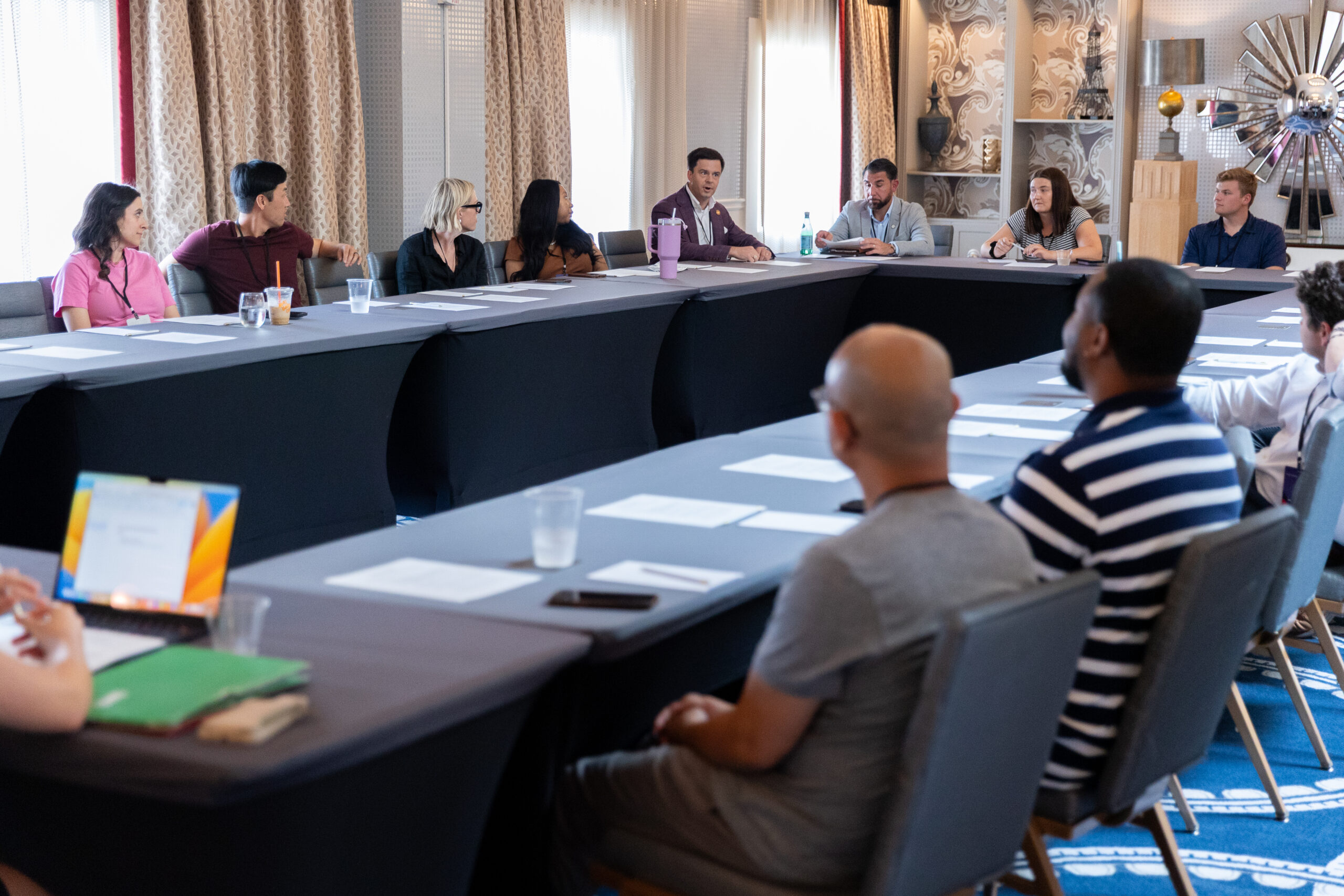
Since 2016, Future Summit has offered young legislators a rare chance to step away from the pressures of governing and connect across geography and ideology. It’s a platform for sparking bold, cross-partisan solutions to entrenched problems in an environment where curiosity, candor, and creativity take precedence over soundbites and party lines.
This year’s theme, America in the Making, captured that spirit of hope and, crucially, of agency. “Democracy isn’t finished, and neither are we,” said Future Caucus president and CEO Layla Zaidane in welcome remarks at the Johns Hopkins University Bloomberg Center on Capitol Hill. “Many of the founders were in their 30s, and they didn’t get everything right, but they embedded a powerful idea in the national DNA: the pursuit of a ‘more perfect union.’”
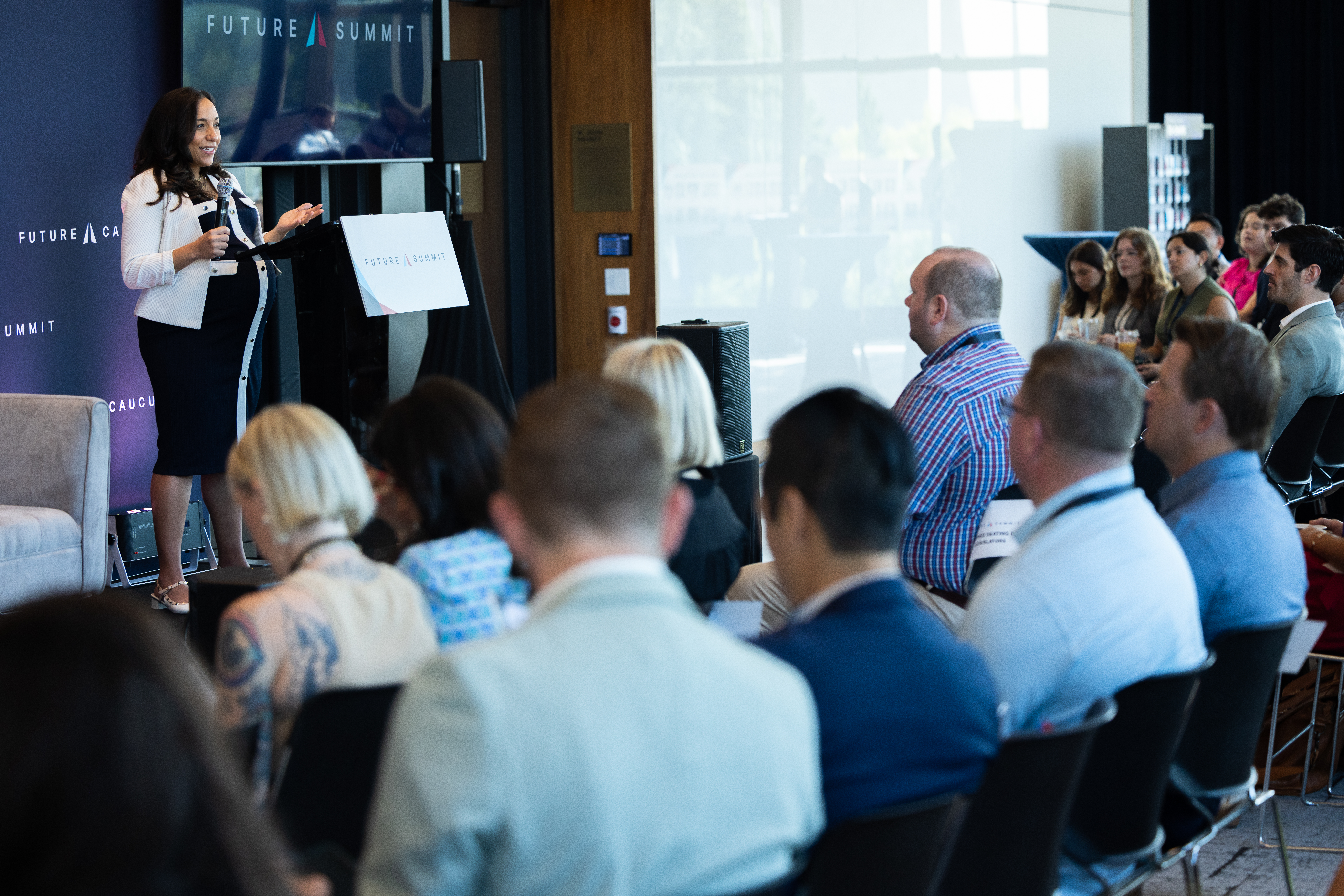
The first morning set a reflective tone. Nicole Bibbins Sedaca spotlighted political pioneers Clara Cressingham, Alexander Twilight, and Félix Maradiaga, who fought to improve imperfect systems from within. Dr. Luyi Kathy Zhang, a hospice and palliative care physician, urged lawmakers to consider how they’ll use their finite time in office to lead without regrets, knowing they’ve fought for their priorities and their constituents. And strategist Scott Greer shared how he dismantled and reconstructed his approach to politics by engaging sincerely with those he once vilified, underscoring that courageous leadership requires vulnerability, not just conviction.
Over three days, lawmakers heard from a range of leaders in politics, business, psychology, finance, and media. Carly Fiorina, former Hewlett-Packard CEO and Republican presidential candidate, spoke with legendary journalist Judy Woodruff about America’s approaching 250th birthday and the need to learn from history. Former Rep. Derek Kilmer, D-Wash., reflected on his cross-partisan efforts to modernize Congress. Digital journalists Aaron Parnas and Kenny Malone, host of NPR’s Planet Money, discussed how to convey complex ideas through authentic storytelling. Rep. Seth Moulton, D-Mass., called for principled leadership in an age of extremes. The summit wound down with a keynote on the Declaration of Independence by historian Dr. Michael Auslin and an after-hours visit to the Library of Congress.
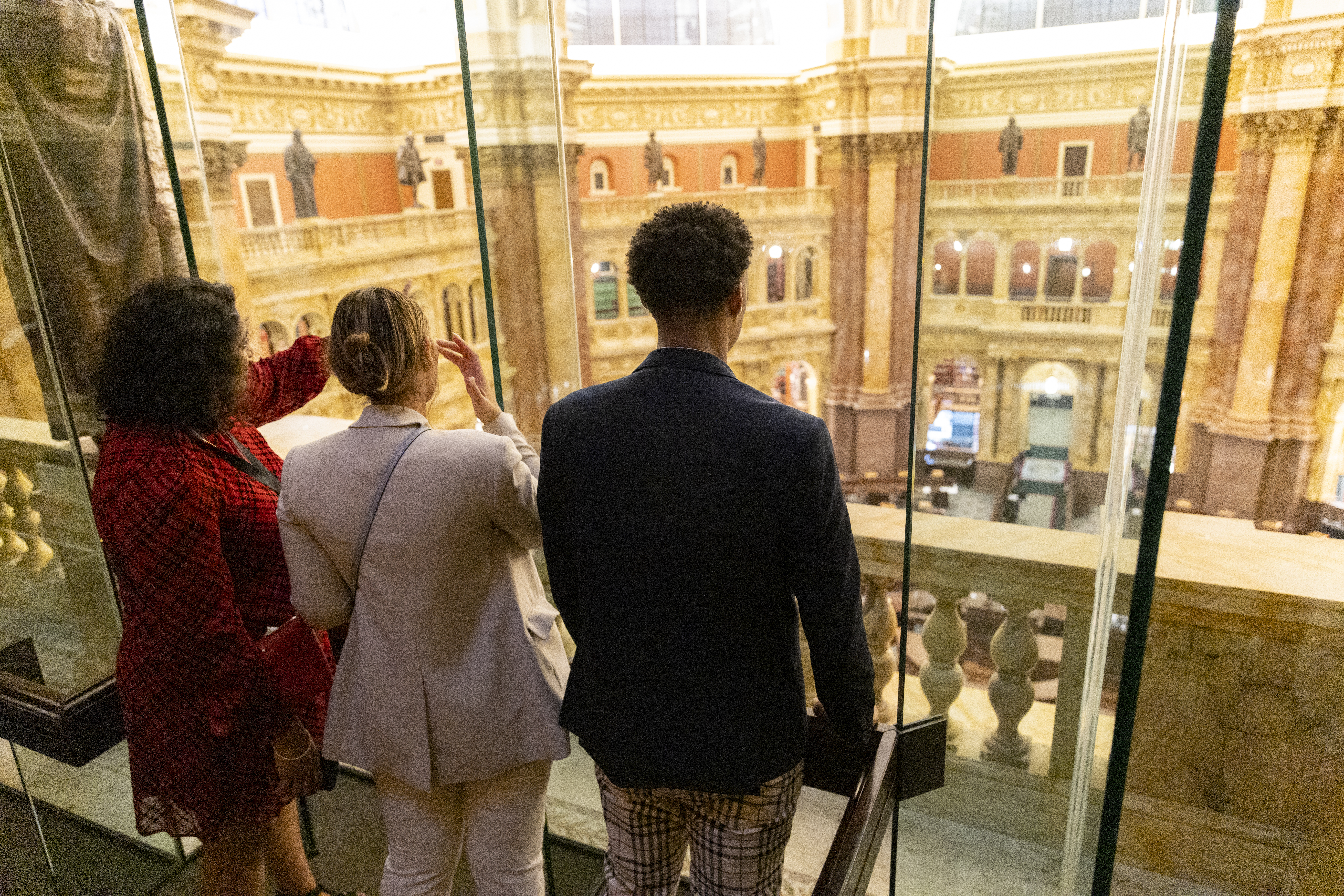
For many, the most valuable part of the Summit was the chance to trade ideas without posturing — connecting over shared policy challenges, forming unlikely alliances, and situating their work in the long arc of American progress.
Over the years, these summits have borne real fruit: In 2022, a conversation between Montana state Sen. Ken Bogner, R-18, and Kansas state Rep. Rui Xu, D-25, led to Bogner testifying in front of the Kansas Legislature on what other states could learn from the bipartisan ‘Montana Miracle’ about addressing the housing crisis. At Future Summit 2023, New York state Asm. Alex Bores, D-73, and West Virginia state Del. Kayla Young, D-56, connected on emerging AI technology and its implications for their states; both have made strides on the issue since. And at Future Summit 2024, a shared look between Arkansas state Reps. Aaron Pilkington, R-69, and Ashley Hudson, D-75, kicked off a chain of events leading to the landmark Healthy Moms, Healthy Babies Act, which came into force on July 1.
We have every reason to believe the conversations sparked at Future Summit 2025 will leave their mark in time.
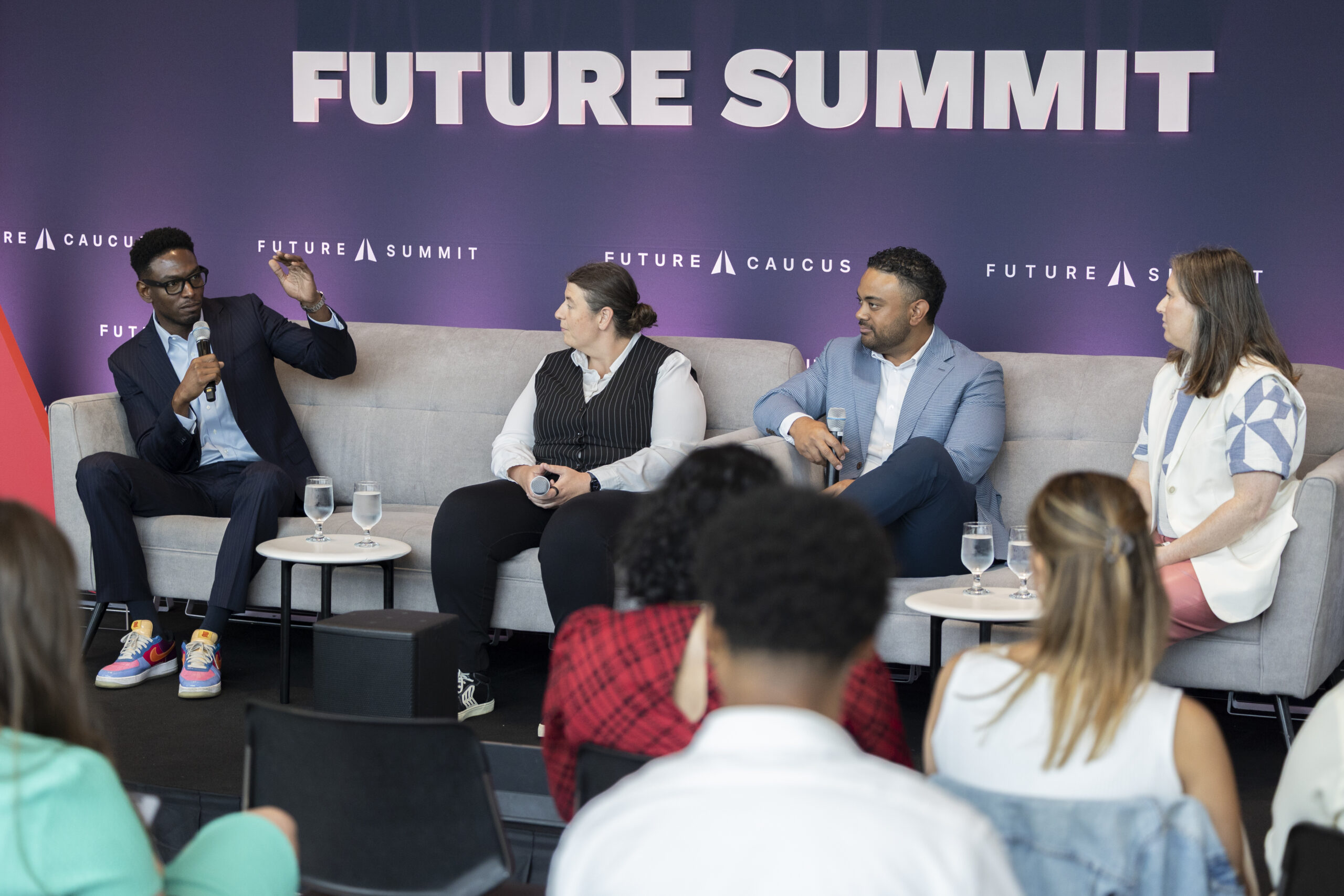
In a moment defined by deep division and dysfunction, the creative, forward-thinking legislators at Future Summit — and hundreds more in the broader Future Caucus network — show that a better way isn’t just necessary, it’s achievable. We’re honored to cultivate space for their brave, ambitious efforts to reach across the divide and transform American politics from within.
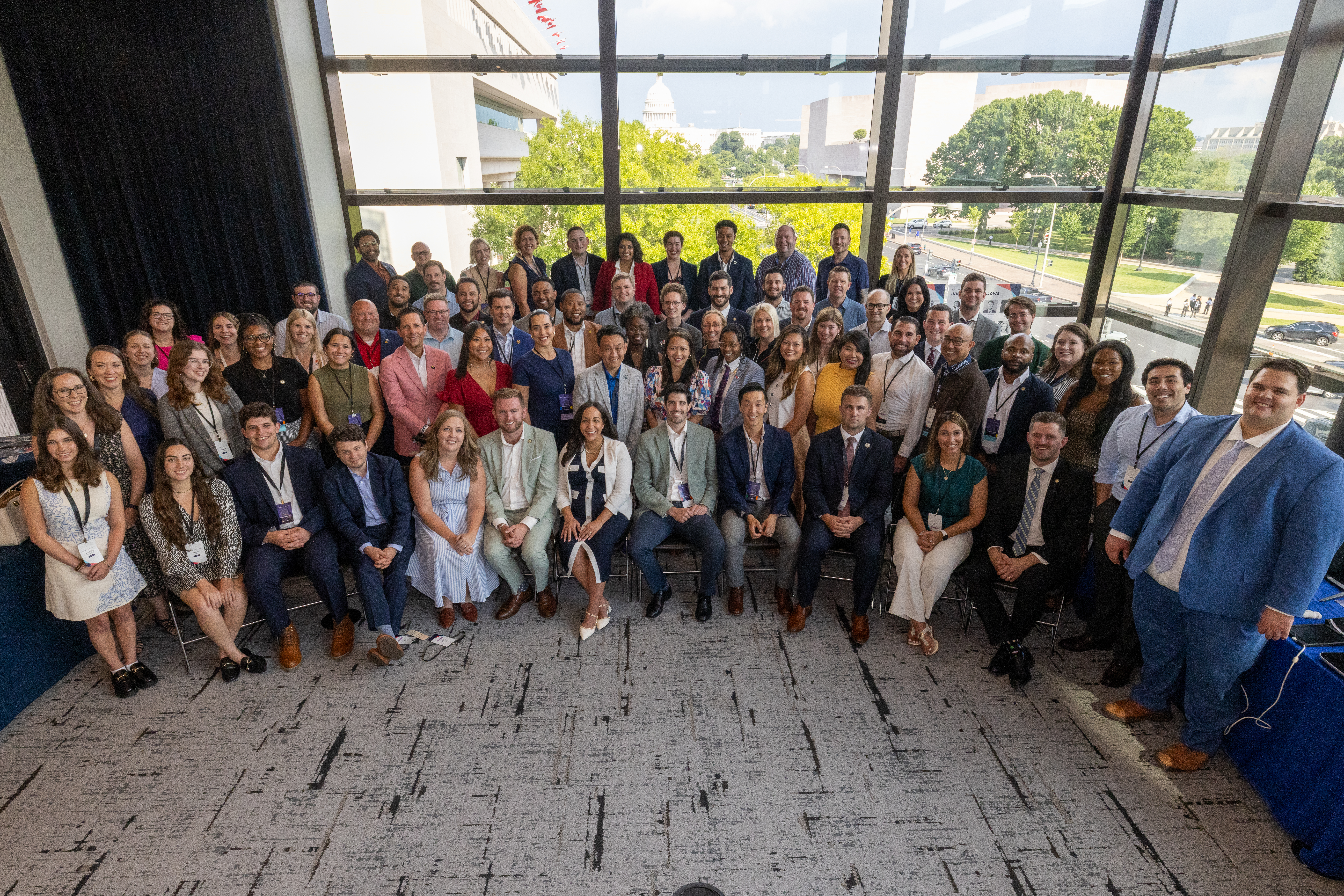






Join 1,900+ BIPARTISAN LEADERS NATIONWIDE
Be a part of a network of lawmakers committed to governing effectively, passing more representative public policy, and increasing public trust in democracy.